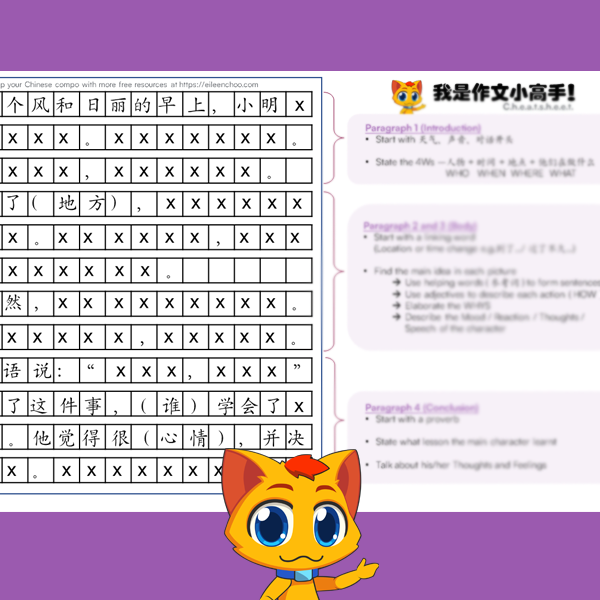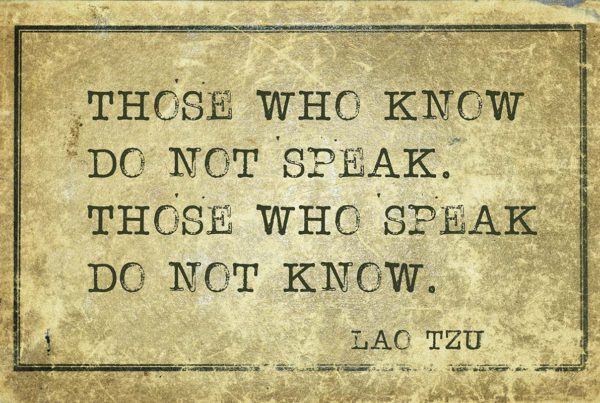
Using good composition phrases in your Chinese compo can definitely add that wow factor into your writing. However, what kind of words or phrases qualify as good?
In this Chinese composition writing guide, we’ll cover the following:
- What is a good Chinese compo phrase
- Examples of good words and phrases that you can use in your Chinese composition
- Common mistakes that primary school kids make with these words and phrases
- What to take note of when using these words and phrases
Let’s dive right in!
What makes a Chinese composition phrase good?
Many parents and students believe that the good phrases that primary school teachers are looking out for are Chinese idioms (成语 cheng yu), classic sayings (俗语 su yu / 谚语 yan yu) and bombastic expressions.
As an ex-MOE Chinese teacher, I can tell that this is true only to a certain extent.
Think about this. Why do we want to write these so-called good phrases in our compositions in the first place?
You just want your compositions to sound more expressive and interesting, right? But this doesn’t mean they have to be complicated.
Good Chinese compo phrases can also include:
- Descriptive words and phrases
- Adjectives
- Transitional phrases
Since there is no standard set of good words and phrases, don’t bother memorizing those so-called “good phrases” that you find in your Chinese assessment books or guide books you see at Popular bookstore. They are good resources, but memorization is too painful.
Instead, try coming up with your own unique expressions!
Sure, this takes some imagination and training. However, if you can pull it off, your Chinese composition is going to stand out from the typical model composition writings and sound much more natural!
To help you get started, here are some examples of good phrases that you can use for writing your next Chinese composition.
Good Chinese phrases for composition writing
Here are some examples of good Chinese phrases (作文好词好句) that can describe the feelings of a character in your compo!
Chinese compo phrases for happy
- 开心地哈哈大笑
- 兴奋得一蹦三尺高
Chinese compo phrases for sad
- 眼泪像断了线的珍珠似的
- 垂头丧气的样子
Phrases to describe anger in Chinese
- 怒气冲冲
- 皱着眉头
Which of these Chinese compo word or phrases do you like?
Why should we use good words and phrases in our Chinese compositions
Good words and phrases can be helpful if you are the kind who finds yourself using the same words or phrases over and over again when you are doing your Chinese zuo wen.
Having a variety of Chinese compo phrases in your toolbox gives you the flexibility to express yourself a little differently each time.
Common misconception about good composition phrases
1. The more good phrases you use, the more impressive your compo is
Many primary school children often make the mistake of memorizing these words and phrases without understanding.
That’s a big no-no.
Not only is memorizing painful, it kills the interest of learning in your primary school years.
If you want to use good phrases to improve your writing, you need to understand what the words and phrases mean so that you can use them correctly. Otherwise, your composition may end up sounding weird or even nonsensical.
So make sure that you really understand what each good phrase mean so that you can choose the most appropriate one to use for your writing. Being able to match the right phrase to the right situation is key to making your Chinese composition shine.
2. The more words and phrases in my compo, the merrier
Stuffing your Chinese composition with good phrases or idioms in every sentence isn’t going to impress your teachers and make you sound smart.
Instead, too many good words and phrases can make your story sound clunky and mechanical.
So here’s a tip! When it comes using descriptive words and phrases in your composition, less is more.
For example, if the characters in the story has not much emotions, focus on narrating the story clearly and be as descriptive as you can. Using the right transitional words instead of good words and phrases would help the flow of your composition.
However, if your main character is experiencing some very strong emotions, elaborate on that by using more descriptive words. You need to choose the right thing to focus on depending on the situation.
Acing your Chinese composition with/without good phrases

Throughout my decade of experience as a teacher and PSLE composition marker, I know that a good piece of writing isn’t graded based on how many good phrases are used.
Instead, it’s based on the quality of your content and your writing fluency. Being descriptive and expressive is a bonus, but if you can bring the same points across with simple words, you can ace your composition too!
So do be natural when writing, never use good phrases for the sake of using them because you have spent a lot of time learning. As long as your composition is a written in a clear and expressive manner, it’s possible to ace it!






